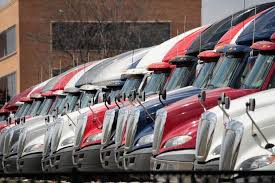
Breaking News
 No One Does It Like Johnny Carson | Mark Malkoff #470 | The Way I Heard It
No One Does It Like Johnny Carson | Mark Malkoff #470 | The Way I Heard It
 Webb is ready - the open source tool that will decode the Epstein files for EVERYONE
Webb is ready - the open source tool that will decode the Epstein files for EVERYONE
 Trump administration ending Minneapolis immigration Operation Metro Surge
Trump administration ending Minneapolis immigration Operation Metro Surge
 TUMBLER RIDGE MASSACRE: The Trans Shooter Media TRIED TO HIDE...
TUMBLER RIDGE MASSACRE: The Trans Shooter Media TRIED TO HIDE...
Top Tech News
 Drone-launching underwater drone hitches a ride on ship and sub hulls
Drone-launching underwater drone hitches a ride on ship and sub hulls
 Humanoid Robots Get "Brains" As Dual-Use Fears Mount
Humanoid Robots Get "Brains" As Dual-Use Fears Mount
 SpaceX Authorized to Increase High Speed Internet Download Speeds 5X Through 2026
SpaceX Authorized to Increase High Speed Internet Download Speeds 5X Through 2026
 Space AI is the Key to the Technological Singularity
Space AI is the Key to the Technological Singularity
 Velocitor X-1 eVTOL could be beating the traffic in just a year
Velocitor X-1 eVTOL could be beating the traffic in just a year
 Starlink smasher? China claims world's best high-powered microwave weapon
Starlink smasher? China claims world's best high-powered microwave weapon
 Wood scraps turn 'useless' desert sand into concrete
Wood scraps turn 'useless' desert sand into concrete
 Let's Do a Detailed Review of Zorin -- Is This Good for Ex-Windows Users?
Let's Do a Detailed Review of Zorin -- Is This Good for Ex-Windows Users?
 The World's First Sodium-Ion Battery EV Is A Winter Range Monster
The World's First Sodium-Ion Battery EV Is A Winter Range Monster
 China's CATL 5C Battery Breakthrough will Make Most Combustion Engine Vehicles OBSOLETE
China's CATL 5C Battery Breakthrough will Make Most Combustion Engine Vehicles OBSOLETE
November Heavy Duty Truck Orders Resume Collapse, Down 39% To Weakest Since 2015

Class 8 orders against collapsed in November, culminating a dismal year that some thought had seen a reprive with October's improved bookings. But new data from FreightWaves shows that the collapse has continued its trend, indicating that the sluggish economy is to blame for lackluster replacement demand.
Orders totaled 17,300 units for the month, which marks the slowest November since 2015 and a 39% collapse from November 2018. The slowdown in orders is prompting layoffs of hundreds of production workers by companies like Daimler Trucks North America, Volvo Trucks North America, Paccar Inc. and Navistar International Corp.
Other names in the Class 8 supply chain are also dealing with the negative effects. For instance, engine manufacturer Cummins Inc. is "laying off 2,000 white-collar employees globally in the first quarter of 2020".
Meanwhile, November used to be a month when fleets would be busy placing orders for the upcoming year. After October's slight tick up in orders, many analysts thought November could follow suit. That didn't happen, and sequentially November's order book was down 21% from October.



